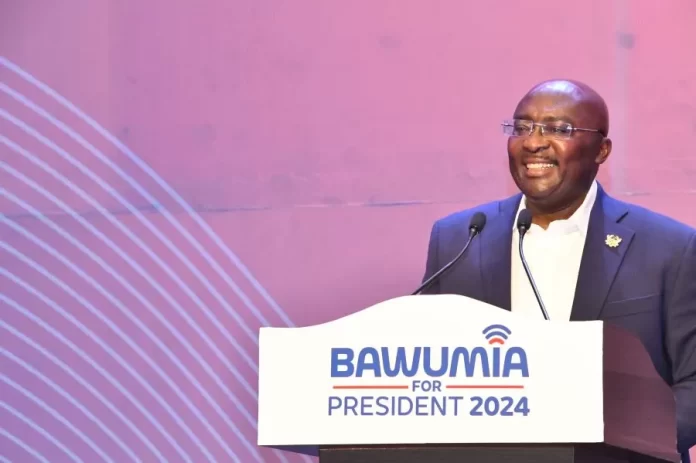Among the many economic difficulties that beset Ghanaians for 2 years now is the rising cost of food items in the country.
Prices of food items have tripled and in some cases, quadrupled, further worsening the living conditions of the populace.
Although the prices have dropped drastically in recent time, they are still above the purchasing power of many Ghanaian consumers.
Vice-President and flagbearer of the governing New Patriotic Party (NPP) has promised to address this if he is elected president of the country in the upcoming elections.
“We also ensure food security by stabilizing the prices of food produced locally through financing and guarantees from the development bank Ghana and the Ghana incentive based risk sharing for agricultural lending,” he stated.
At an event in Takoradi in the Western Region to launch the NPP manifesto for the 2024 elections, Dr. Bawumia acknowledged the hardships bedevilling Ghanaians and bemoaned the rising cost of living which he noted has made life unbearable for many.
To this end, he said he will among other things leverage technology and implement irrigation schemes to upscale food production in the country should he be made leader.
He added that his government will also invest in preservation and storage facilities to prevent postharvest losses.
“This will mainly involved upscaling the production of staple food, investing in the preservation of staple food, meat, poultry and fish products and establishing agricultural enclaves which will have irrigation processing and storage facility in each region for crops or grains in which the region has comparative advantage”.
Dr. Bawumia believes these policies will ensure abundance of food in Ghana and ultimately, ensure food security as well as bring prices down.
The bold solution manifesto, the NPP leader said, is tailored towards addressing 3 pressing needs of Ghanaians.
These are rising cost of living, unemployment and lack of roads.
He, therefore, pledged to encourage the private sector to undertake critical infrastructural projects, ensure tax reforms, stimulate business and economic growth to create jobs and ensure food security as well as reduce the cost of transportation.



